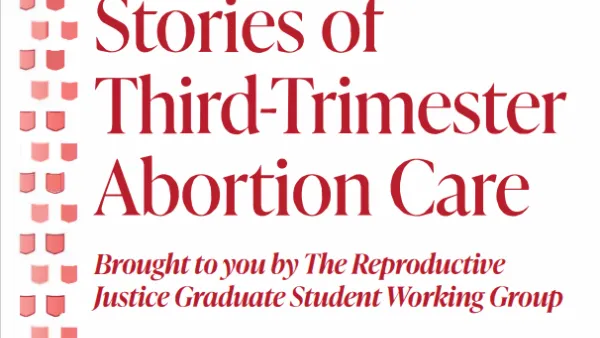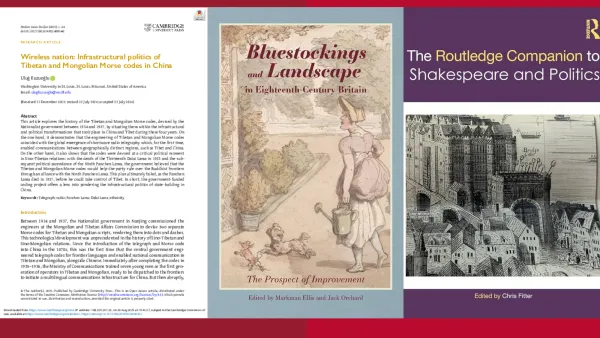Each spring, a small subset of history majors complete honors theses. Requiring months of research under the supervision of a faculty member in the department, these projects represent a major undertaking. The students’ findings are often surprising. Last spring, nine students completed honors theses in the department.
Nick Brdicko reexamines the Vietnam War and an often overlooked factor behind the United States’ failure: institutional and bureaucratic inflexibility. Following his appointment as Secretary of Defense in 1961, Robert S. McNamara drastically reformed the department towards corporate efficiency, which although successful, ultimately proved inadequate at managing a dynamic wartime environment. Brdicko analyzes interviews, memorandums, and budgetary proceedings from the State Department and the Office of the Secretary of Defense.
Malcom Douglass was interested in creating a concrete narrative around the assassination of President John F. Kennedy, but found trouble in archival blind spots specifically covering Kennedy’s death. To solve this, Douglass decided to create his own archive. Douglass hopes his work will lead to more holistic scholarship reckoning with Kennedy’s legacy, both during and after his time.
Kyle Melles illustrates the power in legal interpretation by retelling Kenya’s use of detention without trial laws beginning with the 1952 “Mau Mau” Emergency.” These laws allowed for communal punishment, taxation, confiscation of land, and the death penalty whenever the government declared a state of “emergency.” While one would expect Kenya’s independence in 1963 to remove these legal loopholes, President Jomo Kenyatta used the laws for the benefit of himself and the Kenyan elite. To avoid the loss of civil liberties and abuse of this legal tactic, we must stay aware of the legal reasoning behind emergency powers.
Nicholas LaMorte points out that many of us living in the modern Western world take judicial systems for granted; however, such privileges are anything but standard in human history and even today. LaMorte uses the court rolls of Walsham-le-Willows from 1303–50 to investigate the manorial courts of medieval England as a point of reference for modern courts. Understanding the influence, power, and formalities between legal systems across time and space reveals profound differences between societies.
Thomas Humphrey questions the very nature of urban food systems by critically examining the 1309–11 “castato,” or land registration document, from the town of Cortona. The document is a 400-page folio detailing the conditions of land and agriculture in the Tuscan suburban countryside and its relationship to the city, all contextualized at the time when population peaked right before the Black Death. Humphrey finds that the people in the San Marco region outside Cortona’s walls used community and family to uphold urban society with their unique degree of independence.
Paul Gerstle engages with the status of American politics amidst World War II. American politics is often overshadowed in this period, with most historical literature revolving around overseas events. Gerstle’s thesis demonstrates the limits of the “rally ‘round the flag” effect as both political parties campaigned vigorously ahead of the 1940-44 wartime elections.
Kyle Klemme takes a critical lens to the power of pessimism and its relationship with radical politics in 1920s Germany and Austria. Klemme examines the writings of notable intellectuals such as Freud, Zweig, and Spengler to discover that pessimism granted Germany’s dark chapter of National Socialism ample ammunition to supersede the liberal order. Today, degrees of cynicism, urgency, and pessimism can be appropriate and necessary, but radical promises of impending collapse can be dangerous and often arrive with a hidden agenda.
Julia Fish was initially intrigued by the Guano Act, a law passed in the 19th century that allowed American citizens to arbitrarily claim islands because they contain bird poop, a surprisingly sought-after agricultural resource. One of the islands disenfranchised by the law is Navassa, located between Jamaica and Haiti, where white incarcerated people and Black laborers worked in horrible and dangerous conditions. Fish explores the intersections of racial capitalism and American expansion while learning about Black fraternal and proto-civil rights organizations advocacy work using documents from agricultural publications to ship logs from the period.
Ayush Halder takes an interdisciplinary approach to explore how mainstream film psychologically fabricated a false narrative of the political turmoil and violence surrounding the 1947 Partition between India and Pakistan. Halder intersects psychology memory studies, historical analysis of mental health in India amidst the aftermath of 1947, and close readings of films about Partition to discover how the collective memory of Partition changed over time. Films often captured themes of family, sorrow, and loss rather than addressing the political involvements of the British, Indian, and Pakistani states—a thematic preference that grew more prevalent with progressive retellings of Partition.



